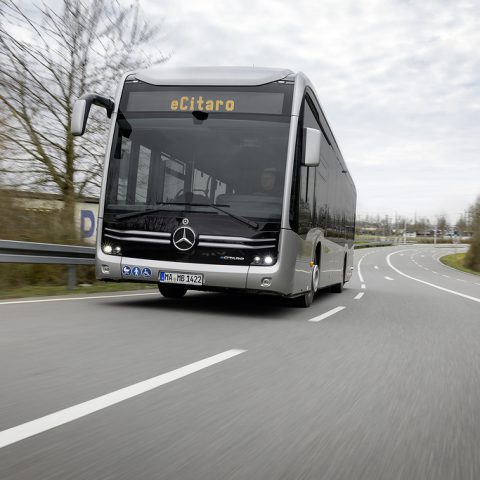The eCitaro will be produced (also) in France. €50M investment in Ligny-en-Barrois
Daimler Truck has announced plans to produce the Mercedes eCitaro at their plant in Ligny-en-Barrois, France. This move is part of the group’s investment of approximately 50 million euros by 2030 to expand the production of electric buses at the French location. The conversion and modernization of the plant are expected to create 250 additional […]

Daimler Truck has announced plans to produce the Mercedes eCitaro at their plant in Ligny-en-Barrois, France. This move is part of the group’s investment of approximately 50 million euros by 2030 to expand the production of electric buses at the French location. The conversion and modernization of the plant are expected to create 250 additional jobs. The news was reported by the specialized German media omnibus.news.
Daimler Truck has announced it has acquired three hectares of land to expand the Ligny-en-Barrois plant in order to accommodate the production of both diesel and electric buses. However, the Citaro series vehicles will remain the primary focus at this location.
Mercedes eCitaro and the French market
The French market cannot be anything but of great interest to Daimler Truck as, in the past four years, with the exception of 2020, it has been the largest in the continent for buses and coaches over 8 ton (more figures and analysis on European bus markets 2019-2022 on the latest issue of Sustainable Bus magazine, pag. 22-25). However, the market share of the eCitaro has so far been residual in the country.
Earlier this year, Daimler Buses and the general works council of EvoBus GmbH have agreed on a deal in order to ensure long-term competitiveness and the German sites, as Daimler Truck stated in a press note. The Mannheim plant is set to become the center of competence for electric city buses and focus exclusively on the production of electrically powered city buses starting in 2024. Additionally, the Ligny-en-Barrois plant will produce electric buses, including trolleybuses, while the Neu-Ulm plant will manufacture electric intercity buses and buses with battery-electric and hydrogen fuel cell drive systems.
Still according to that deal, the complete bus bodyshell construction for the Ligny-en-Barrois, Mannheim and Neu-Ulm plants will be carried out at the Holýšov site in the Czech Republic beginning in 2028.







